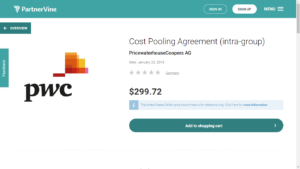PartnerVine
PartnerVine is the first platform for law firms to sell their legalTech — providing law firms with a route to market for tech products they have developed in house, from simple template documents through to full blown tech solutions.
For example a firm might develop a GDPR compliance tool for a specific client. The return on investment for that tool for the firm would normally be the charges they pass onto the client.
What PartnerVine challenges law firms to consider whether the use case for tool they are building is general. Could that same GDPR tool be sold to more parties?
If the firm can instead build a version of the tool that can be sold to more parties, it will massively increase the ROI on the tool for the firm. PartnerVine delivers the marketplace, manages transactions, distribution and marketing — leaving the law firm to focus on delivering and iterating their product.
Jordan Urstadt, CEO and Founder of recognises that:
“traditionally there has been no way for a law firm to recoup its investment in standardising and automating information, which is the legal industry’s version of the last mile problem”
PartnerVine launched in Switzerland in October of last year, and with PwC as the first supplier offered over 40 documents initially through their marketplace. This has now grown to over 120 documents with two firms, with more firms in the pipeline with documents to add.
Since launching PartnerVine, Urstadt notes that their business model has expanded to include legal tech developed by innovation teams at law firms. PartnerVine’s initial strategy was to apply LegalZoom’s B2C model to B2B, which is the model it started with at launch. After speaking with innovation teams at law firms, PartnerVine is also providing a venue for innovation teams to sell the legal tech they develop in-house.
The PartnerVine Marketplace
The strength of PartnerVine’s offering is taking the aspects of selling a product, from listing to closing a sale and collecting payment — away from the law firm. Because their platform will act as an aggregator and legalTech marketplace, PartnerVine believes that their website will gain good traction with respect to SEO (search engine optimisation) with more backlinks and authority than a law firm’s proprietary offer — and making it more likely that buyers will find the product they are looking for.
I asked Urstadt how the process works for a firm wanting to sell their legalTech through the PartnerVine platform:
“The law firm needs to have a software provider that is open to selling their software with a limited use license. With that limited use license, third parties can buy the law firm’s product directly on PartnerVine. On purchase, the buyers can link to the law firm’s environment with restricted use.
On where he sees the development of legal services online, Urstadt is bullish on the role of law firms developing their own tech:
“The limiting factor in law firms developing legal tech has traditionally been a lawyer’s time — law firms have pulled the plug on projects that reduce their revenues. Many innovation teams at in-house firms are developing process-oriented dashboards because it does not require a lot of lawyer time. With PartnerVine, we’re already starting to see lawyers committing more time to tech as they see it as a source of revenue rather than an expense, and we are excited to see that trend continue. That’s the future and where PartnerVine can provide its value add to law firms. Legal Tech makes economic sense when it is sold at volume.”
Visit PartnerVine at Startup Hub 1 or at www.partnervine.com


